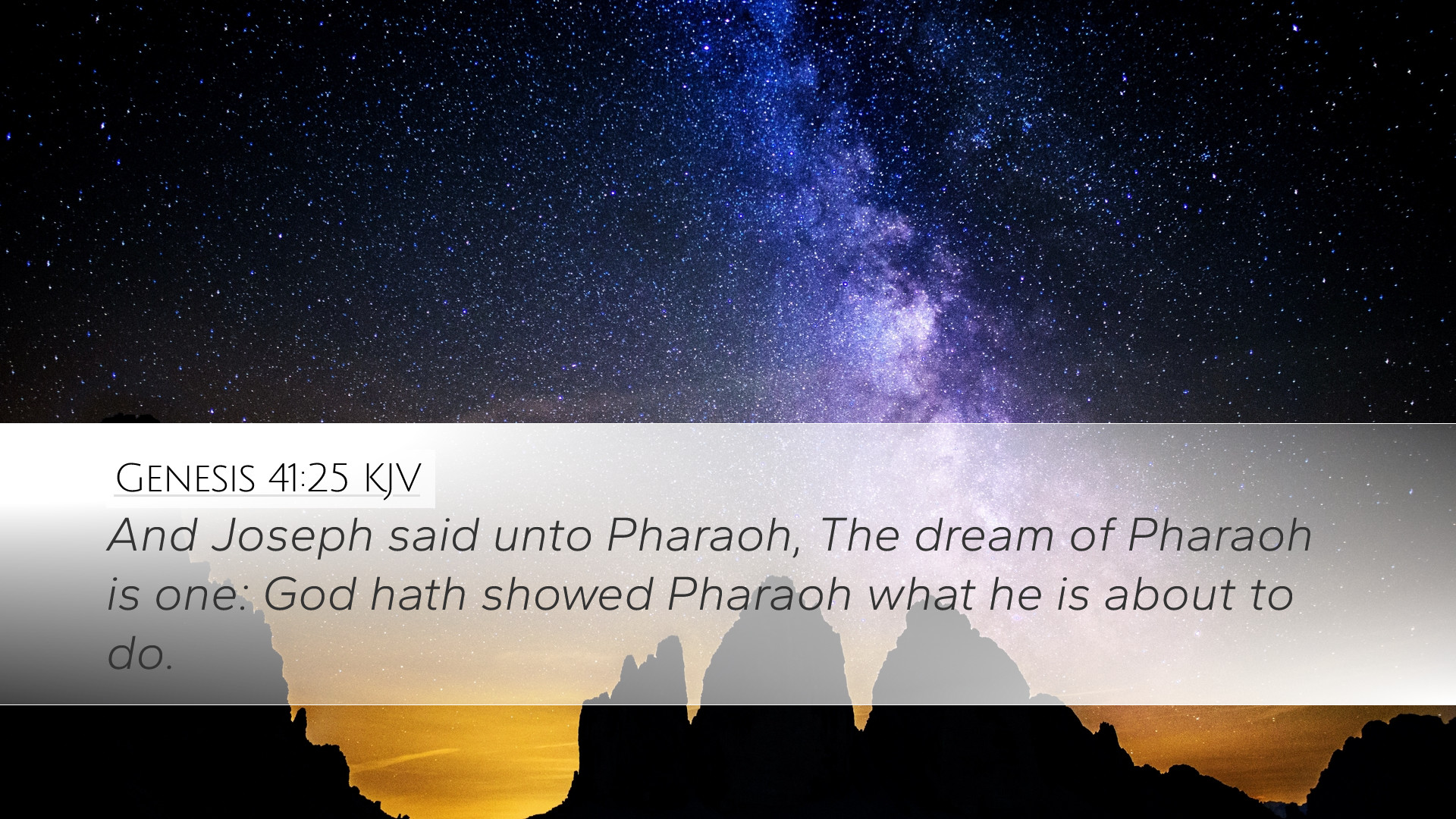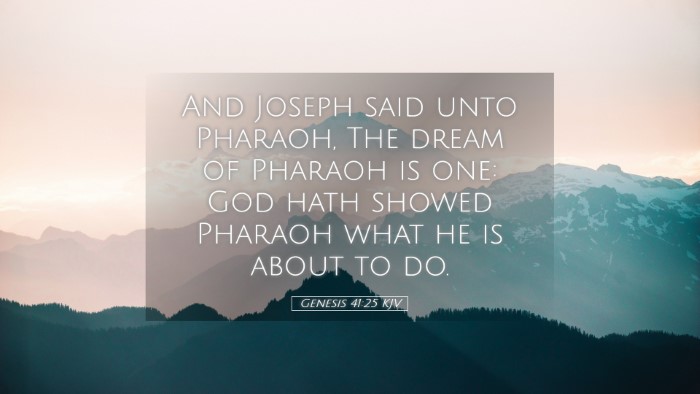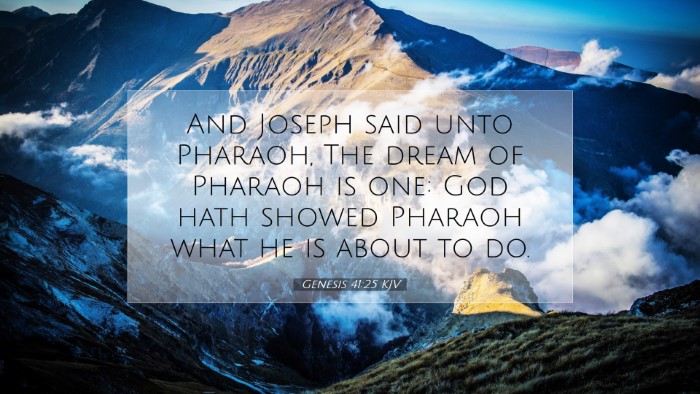Commentary on Genesis 41:25
Text: "And Joseph said unto Pharaoh, The dream of Pharaoh is one: God hath showed Pharaoh what he is about to do."
Introduction
Genesis 41:25 marks a pivotal moment in the narrative of Joseph's life, where he interprets Pharaoh's dreams, revealing God's sovereign plan for Egypt and the surrounding nations. Drawing from insights of esteemed commentators, we aim to delve into the theological implications, historical context, and practical applications of this scripture.
Theological Insights
The verse emphasizes God's sovereignty in revealing future events. Joseph's declaration that God has shown Pharaoh what He is about to do underscores the divine foresight and authority inherent in God's revelation.
-
Divine Revelation: Matthew Henry notes that God often reveals His purposes to His servants, preparing them for the roles they are to play in divine providence. Joseph, as the human instrument, is revealed as a prophetic figure through whom God's plans are articulated.
-
Unity of the Dream: Joseph's assertion that "the dream of Pharaoh is one" indicates a significant theological point about the oneness of God's message. Albert Barnes emphasizes that despite the multiplicity of symbols in dreams, they often convey a singular divine truth. This unity reflects the consistency of God's revelation throughout scripture.
-
God’s Purpose in History: Adam Clarke articulates that every dream holds a purposeful role in God’s plan for humanity. This suggests a broader theological framework where earthly events are both shaped by and serve the divine narrative, often indicating God’s direct intervention in human affairs.
Historical Context
Understanding the cultural and historical context of ancient Egypt is crucial for interpreting this verse. Pharaoh, as a ruler, is accustomed to interpreting symbols and dreams, serving as a potent reminder of divine authority intersecting with human leadership.
-
The Role of Dreams: In ancient Egyptian culture, dreams were often viewed as omens or messages from the divine. Joseph's ability to interpret Pharaoh's dreams highlights the significance of divine communication in a context that valued dream interpretation.
-
Joseph’s Position: The backdrop of Joseph's past—his betrayal and rise to power—provides a rich tapestry illustrating God's providential hand. Both Henry and Clarke emphasize that understanding Joseph's trials leads to a deeper appreciation of divine favor manifesting amid adversity.
Interpretative Perspectives
The interpretations of dreams in the ancient world are often laden with symbolic meanings and cultural significance. Joseph's approach provides a clear model for theological reflection and pastoral application.
-
Interpreting Dreams as God’s Voice: Joseph’s interpretation indicates a model for believers today in discerning God’s voice in their lives. As noted by Barnes, every experience can serve as an opportunity for revelation—encouraging Christians to be attuned to the Spirit's prompts.
-
Living in Light of Divine Revelation: This verse challenges pastors and leaders to consider how they communicate God’s messages to their communities. Joseph’s role serves as a reminder of the responsibility borne by those who receive insight into God’s will.
Practical Applications
Genesis 41:25 encourages a personal and communal response to divine revelation. It invites reflection, prayer, and preparation in anticipation of what God may be revealing to individuals and congregations.
-
Preparation for the Future: The warning of impending famine demonstrates the need for vigilance and preparedness. Spiritual leaders must cultivate a posture of readiness in their congregations as they anticipate God's leading.
-
Encouraging Prophetic Voices: Joseph's narrative serves as an encouragement for spiritual discernment. Pastors and leaders should strive to foster environments where congregants feel empowered to express insights and revelations they receive from God.
Conclusion
In conclusion, Genesis 41:25 encapsulates profound truths concerning God’s sovereignty and the dynamics of divine communication through the prophetic. By examining the insights of public domain commentators, we find that this verse offers rich theological, historical, and practical teachings. As we reflect on Joseph’s insights, may we open our hearts to God’s revelations and be prepared to respond in faith.


